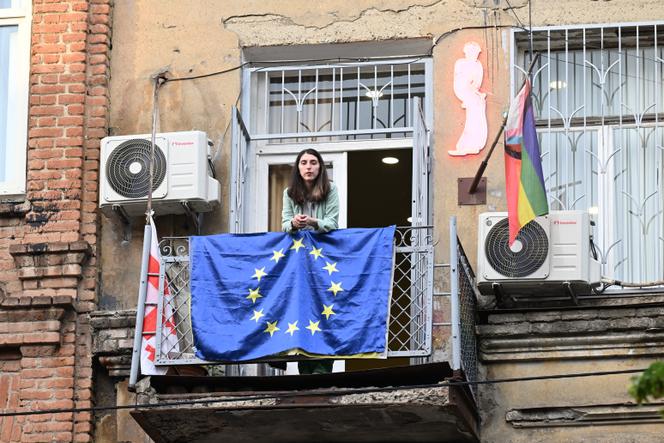


After civil society and the independent media, targeted by the controversial Foreign Influence Law, the Georgian government is now attacking LGBT people. On Thursday, June 27, the Tbilisi parliament passed its first reading of a draft law on the "Protection of Family Values and Minors," as well as amendments to 18 laws designed to deprive sexual minorities of their rights.
The legislative package was approved with 78 votes in favor and none against – the majority of opposition MPs did not attend the plenary session as they have been boycotting parliamentary work since the adoption of the law on foreign influence. It had been submitted by the ruling Georgian Dream party, founded by billionaire oligarch Bidzina Ivanishvili, who runs the country from the shadows.
On Wednesday, the Venice Commission, an advisory body to the Council of Europe made up of independent experts in constitutional law, had unsuccessfully called to "reconsider this legislative proposal in its entirety and not to proceed with its adoption," as the text infringed, in its view, on rthe non-discrimination of LGBT people and respect for the European Convention on Human Rights.
The new law bans same-sex marriage, the adoption of children by non-heterosexuals and by "those who identify themselves as different from their sex," as well as gender reassignment surgery. It also bans public gatherings "aimed at promoting homosexual relations and the identification of a person with a different gender," the dissemination of information on the subject, likened to "LGBT propaganda," and any reference to or positive image of same-sex relations in the media, films and schools. Offenders will be fined up to 5,000 laris (around €1,660), a colossal sum in this Caucasus country, where the average monthly wage is 1,300 laris. Repeated violations will result in criminal prosecution.
"These are draconian measures," said Andrew Stroehlein of the NGO Human Rights Watch. This law would "legalize homophobia and discrimination. It would violate the rights of LGBT people and run counter to Georgia's international human rights obligations."
Like the Foreign Influence Act, this anti-LGBT bill is directly inspired by Russian legislation passed in 2013 banning LGBT "propaganda" aimed at minors. Over the years, Russia has gradually tightened its legislation. In November 2022, Russian MPs extended the ban to the entire population, before banning sex reassignment among minors in June 2023. A new milestone was reached in November, when the Russian Supreme Court classified the "international LGBT movement and its affiliates" as a "terrorist organization," paving the way for prosecution and prison sentences against homosexuals and activists defending their rights in Russia.
You have 57.69% of this article left to read. The rest is for subscribers only.
